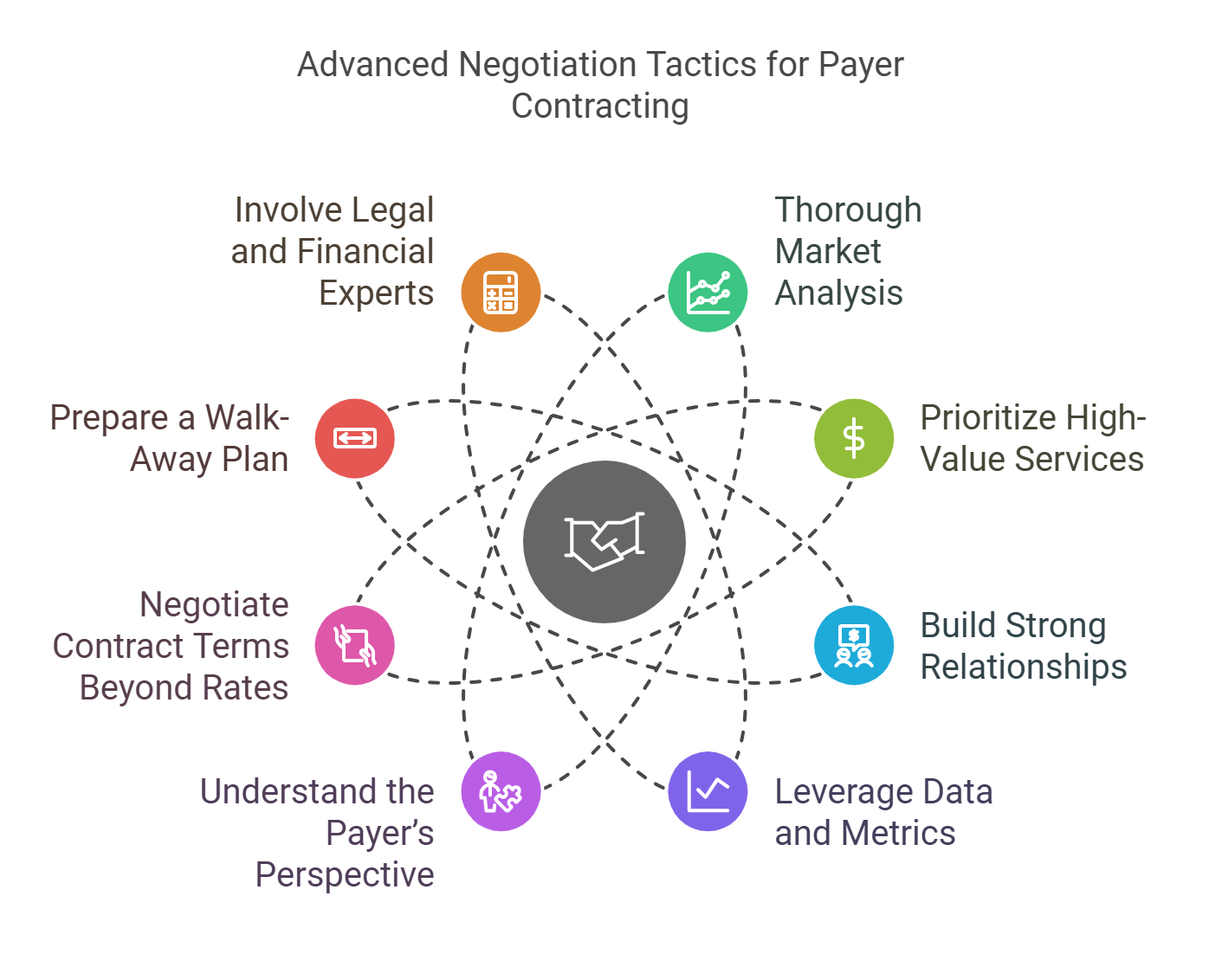Introduction
Negotiating payer contracts can feel like a high-stakes game. The terms you secure directly impact your reimbursement rates, operational flexibility, and long-term financial stability. Yet, many DME providers accept payer terms at face value, leaving money on the table.
Advanced negotiation tactics are essential to secure contracts that align with your business goals. In this blog, we’ll explore proven strategies to strengthen your position at the negotiation table and maximize your reimbursement potential.
Why Negotiation Is Critical in Payer Contracting
- Payer Contracts Are Not One-Size-Fits-All
Every contract reflects a payer’s priorities, not necessarily yours. Negotiation ensures the terms are mutually beneficial. - Reimbursement Rates Impact Cash Flow
Low reimbursement rates can erode profit margins, especially for high-cost DME items. - Terms Affect Operational Efficiency
Contract terms—such as prior authorization requirements or payment timelines—can create administrative burdens if not negotiated effectively. - Annual Reviews Are Rarely Automatic
Without proactive renegotiation, contracts often remain stagnant, even as operational costs rise.
Key Components of a Favorable Payer Contract
- Reimbursement Rates: Ensure they cover your costs and align with market averages.
- Fee Schedule Transparency: Clarify how rates are applied to DME services and products.
- Prior Authorization Policies: Negotiate to minimize delays for commonly used items.
- Claim Submission Deadlines: Establish timelines that work with your internal processes.
- Payment Timelines: Push for shorter payment cycles to improve cash flow.

Advanced Tactics for Negotiating with Payers
- Leverage Market Data
- Why It Works: Data-driven arguments are harder to dispute.
- How to Do It: Research reimbursement rates for comparable providers in your region. Present these benchmarks to justify your requests.
- Focus on Win-Win Solutions
- Why It Works: Payers are more likely to compromise when your proposals align with their goals.
- How to Do It: Highlight how your services improve patient outcomes or reduce costs for the payer.
- Bundle Negotiations for Better Leverage
- Why It Works: Grouping multiple services or product lines into a single negotiation increases your bargaining power.
- How to Do It: Propose bundled agreements that streamline processes for both parties.
- Prepare for Pushback
- Why It Works: Anticipating payer objections allows you to counter effectively.
- How to Do It: Identify potential concerns (e.g., cost, volume) and prepare evidence-based responses in advance.
- Build Long-Term Relationships
- Why It Works: Payers are more likely to accommodate providers they trust.
- How to Do It: Maintain open communication, deliver consistent quality, and proactively address issues as they arise.
Common Mistakes to Avoid During Negotiations
- Starting Without Preparation: Entering negotiations without data or a clear strategy weakens your position.
- Focusing Solely on Rates: Overlooking operational terms (e.g., claim submission or payment timelines) can create inefficiencies.
- Accepting the First Offer: Payers expect providers to negotiate. Failing to push back signals a lack of confidence.
- Ignoring the Fine Print: Hidden clauses can lead to unexpected costs or obligations.
How WWS Can Help
At WWS, we specialize in payer negotiations that deliver measurable results.
- Market Analysis Expertise: We provide data-driven insights to strengthen your position at the negotiation table.
- Comprehensive Contract Reviews: Our experts identify opportunities to improve terms and avoid pitfalls.
- Ongoing Support: We assist with renegotiations and ensure contracts remain aligned with your business goals over time.
Schedule a consultation with WWS today to secure better payer contracts:
Schedule a Meeting with WWS.
Conclusion
Negotiating with payers doesn’t have to be a daunting task. With the right data, preparation, and strategy, you can secure contracts that enhance your financial stability and operational efficiency.
Let WWS guide you through the complexities of payer contracting—schedule your consultation today!




